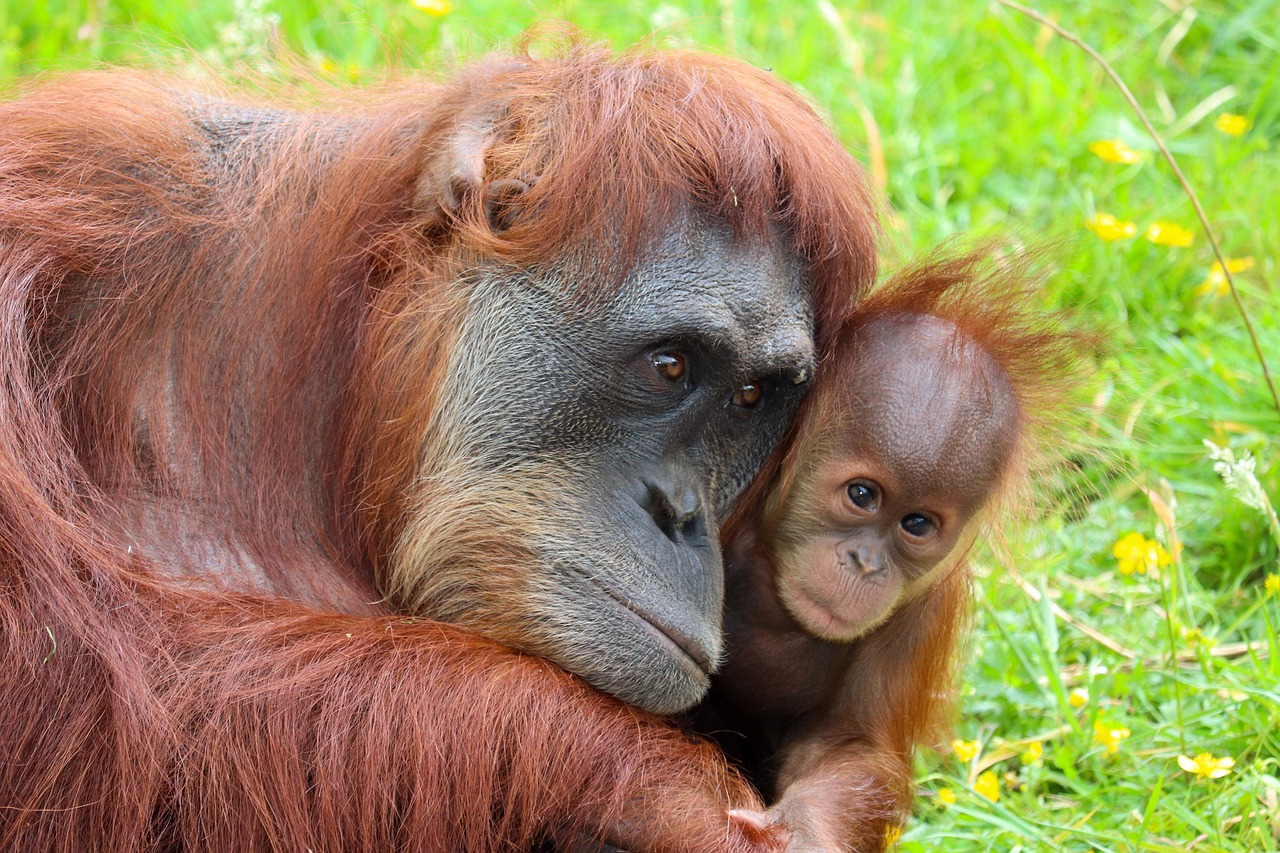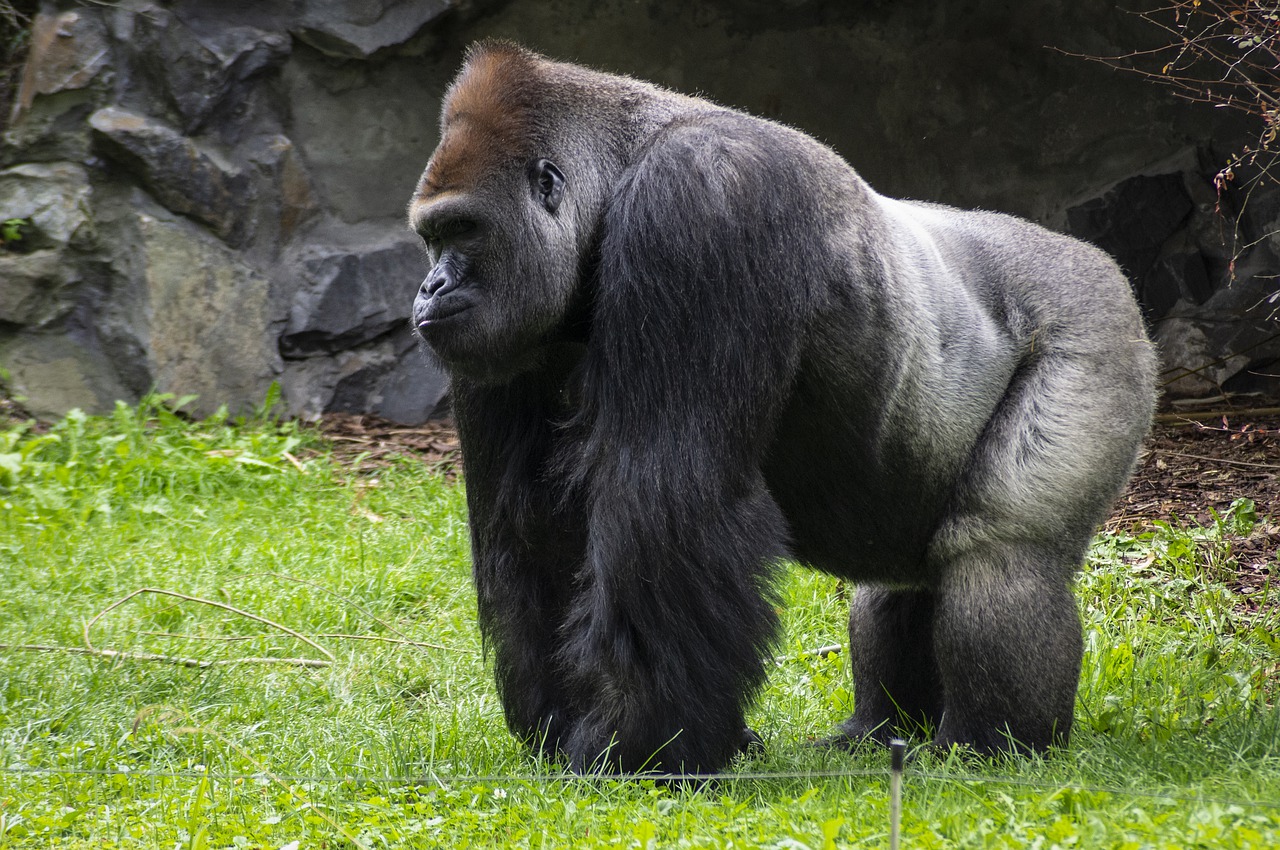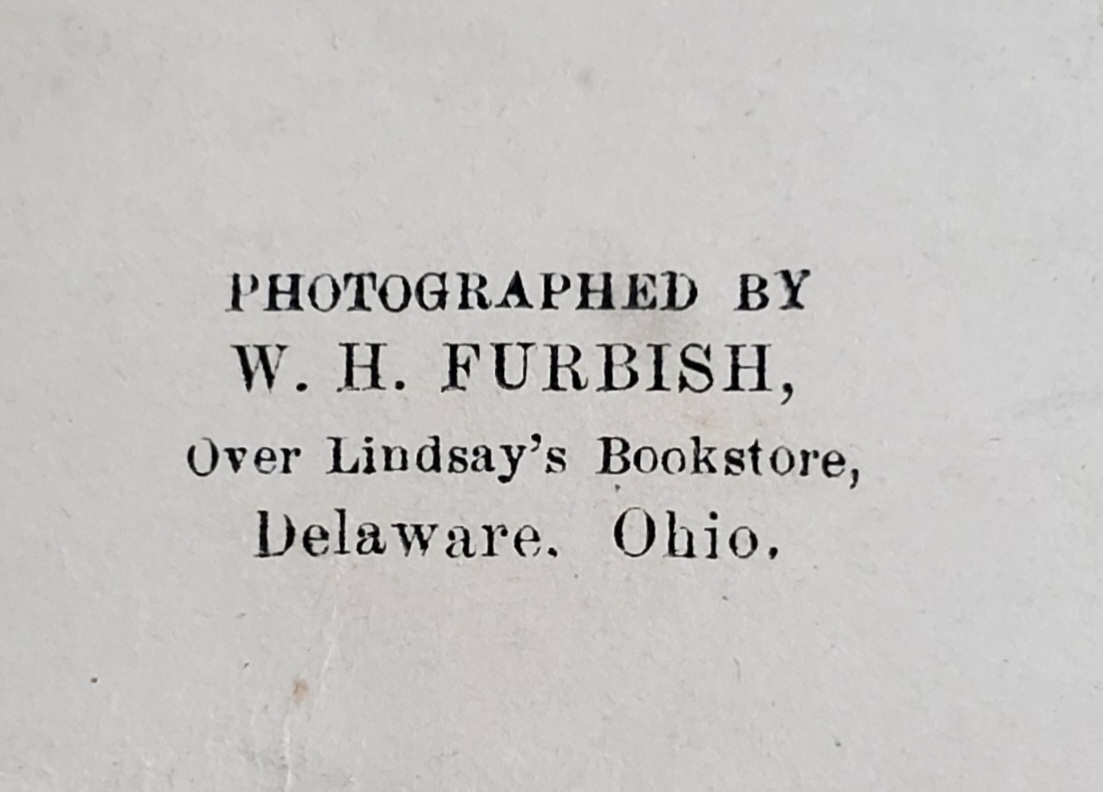Special to 1808Delaware
The Columbus Zoo and Aquarium is celebrating the arrival of a female baby Bornean orangutan—the first of this critically endangered species born at the Zoo in over 60 years!
The little one was born on Tuesday, November 28, 2023 at 12:34 a.m. to first-time mother, Khali. Their care team continues to observe them closely and reports that Khali is very attentive to the baby’s needs. Khali spends her time grooming and snuggling her baby, who appears to be bright and strong. Thanks to the trusting bond that Khali shares with her devoted care team, Khali is bringing her baby over to the keepers for visual examinations and continues to participate in training sessions, which help to support her own healthcare.
Orangutans are semi-social compared to other great ape species, and while females overlap in male’s territory in their native range, interaction outside of breeding is limited. Due to the extensive resources provided in professional care, male and female orangutans do very well living together but still enjoy alone time. In preparation for the birth, Khali had been separated from the other two orangutans to give her space. Once the baby was born, Khali and her baby had visual access to the baby’s father, 30-year-old Sulango, and 49-year-old female, Dumplin, who is one of the oldest Bornean orangutans living at a zoo in the United States. Introductions are now taking place during the day as the orangutans choose, and they will continue to have their own space overnight. All of the orangutans were together for the first time on Saturday, December 2, and the care team confirmed that introductions went very well. Both Dumplin and Sulango showed interest in the baby while also respecting Khali and the baby’s space. While most of the baby’s care will be provided by Khali, Sulango has proven to be a protective yet gentle and patient father. Sulango sired two surviving male offspring at Zoo Atlanta before he arrived at the Columbus Zoo in 2013.
“Since the birth, Sulango has been frequently seen sitting in visual range of Khali and their new infant. Shortly after the pair was reunited, Khali approached Sulango and started to groom him. Sulango took this opportunity to calmly look at the baby, his first female offspring. Whenever he has the chance, Sulango can be seen catching glimpses of the baby, but he is always respectful of Khali and her privacy. Dumplin has been a bit more reserved, but she has also approached Khali and the baby and took a brief moment looking at the newest member of the family,” said Audra Meinelt, the Columbus Zoo and Aquarium’s Curator of Congo Expedition and Orangutans.
The pairing of Khali and Sulango was recommended by the Orangutan Species Survival Plan® (SSP), a program coordinated by the Association of Zoos and Aquariums (AZA) to maximize the genetic diversity and increase the population sustainability of threatened and endangered species in professional care. Due to having the longest interbirth interval (approximately 6-9 years) and infant dependency of any non-human mammal, orangutans do not tend to have many babies. The females may produce 4-5 offspring throughout their lifetime, making each birth particularly important. The last orangutan birth occurred at the Columbus Zoo in 1962, and since that time, orangutans have resided at the Zoo at various times and not all had breeding recommendations.
“We are incredibly proud to welcome the baby orangutan, and we are grateful to our dedicated Animal Care team, who have applied their expertise in all of the preparations over the last several years leading up to the breeding and birth. Not only is this adorable baby already stealing our hearts with her head full of reddish-brown hair and incredible, soulful eyes, but her birth is extremely significant for her species. We look forward to inviting our guests to come see her in the near future so they, too, can see the hope that she represents and be inspired to take action to help protect orangutans’ future,” said Dr. Jan Ramer, Senior Vice President of Animal Care and Conservation at the Columbus Zoo and Aquarium.
Found in the Malaysian and Indonesian portions of the island of Borneo, Bornean orangutans are the largest arboreal mammal. “Orangutan” means “person of the forest” in the Indonesian and Malaysian languages, and orangutans share approximately 97 percent of the same DNA as humans. The population of orangutans is estimated to be approximately 70,000-100,000 individuals, and over the past 20 years alone, their habitat has declined by more than 80 percent mostly due to logging and the clearing of habitat in oil palm plantations.
One important way that people can help orangutans is to purchase items made from sustainably-sourced palm oil. Sustainable palm oil production follows environmental standards to help keep the orangutans’ forest habitat healthy. Downloading and using the PalmOil Scan app (available in Google Play or the App Store) helps to identify which companies use sustainable palm oil and support protecting wildlife, and shows which products are orangutan-friendly.
Since 1995, the Columbus Zoo has contributed more than $307,000 to conservation projects benefiting orangutans in their native range. The Columbus Zoo has also teamed up with HUTAN-Kinabatangan Orangutan Conservation Programme to work together to educate local communities to improve the coexistence between orangutans and agricultural areas like oil palm plantations while improving habitats. In 2015, the Columbus Zoo awarded Marc Ancrenaz from Project HUTAN with the Zoo’s prestigious Commitment to Conservation Award, which included a $50,000 grant to help fund additional work to help protect the species.
The orangutans’ indoor viewing habitat in the Zoo’s Australia and the Islands region is currently closed to guests while the newly-expanded orangutan family continues to bond.
For additional updates about the orangutans, the Columbus Zoo’s conservation initiatives, participation in projects such as the Great Ape Heart Project, events, and more, be sure to follow the Zoo’s social media accounts on Facebook, Instagram, X, and TikTok, and visit us at ColumbusZoo.org.
Image by Blandine JOANNIC from Pixabay










